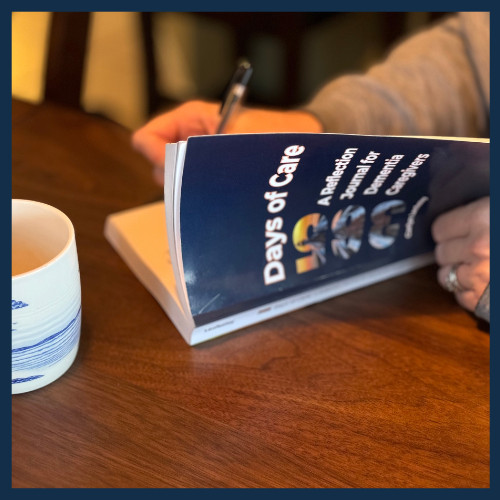
Dementia caregiving often feels like an endless to-do list, leaving little time for your own well-being. Yet, prioritizing self-care isn’t a luxury—it it’s a necessity. Journaling is one of the simplest, most effective ways to take care of yourself emotionally, mentally, and even physically.
Through journaling, you can process your emotions, reduce stress, and gain clarity on the challenges you face as a caregiver. It’s an adaptable practice that meets you where you are, whether you have 30 seconds or 30 minutes to spare.
Let’s explore the benefits of journaling and how it can be tailored to the unique experiences of dementia caregivers.
1. Benefits of Journaling for Caregivers
Journaling offers countless benefits, many of which are especially impactful for caregivers:
• Emotional release: Writing down feelings of frustration, guilt, or overwhelm can help release pent-up emotions and prevent burnout.
• Improved clarity: Journaling helps you reflect on situations, identify patterns, and problem-solve more effectively.
• Stress reduction: Engaging in a calming, intentional activity like journaling can lower cortisol levels and reduce anxiety.
• Increased gratitude: Documenting positive moments, no matter how small, helps shift focus from challenges to joys.
• Self-discovery: By journaling, you can reconnect with your identity and goals outside of caregiving.
2. Types of Journaling to Try
Journaling doesn’t have to be time-consuming or complex. Here are a few approaches that caregivers may find helpful:
Gratitude Journaling
Gratitude journaling is a simple way to reframe your perspective and find joy in everyday moments. Each day, write down 1-3 things you’re grateful for—whether it’s a small success, a kind word, or a moment of peace.
How to start: Dedicate a few minutes in the morning or evening to write about the things that brought you joy or peace during the day.
Reflection Journaling
Reflection journaling allows you to explore your emotions, learn from experiences, and track your growth as a caregiver. It’s especially helpful for processing both positive and challenging moments.
Tool to Try: 365 Days of Care: A Reflection Journal for Dementia Caregivers. This guided journal is designed specifically for caregivers, offering daily prompts to help you reflect on your journey with intention and clarity. With space to capture your thoughts, emotions, and moments of joy, it’s a meaningful way to connect with yourself while navigating the caregiving experience.
Stream-of-Consciousness Writing
This free-form journaling method allows you to write whatever comes to mind without judgment. It’s an excellent way to process emotions, vent frustrations, and clear mental clutter.
How to start: Set a timer for 5-10 minutes and write nonstop, even if it’s just “I don’t know what to say” at first.
Goal-Oriented Journaling
Write down your personal goals—big or small—and track your progress over time. Caregiving often overshadows personal ambitions, but goal journaling can help you reconnect with what matters to you.
3. When and How to Journal
Journaling is flexible—it fits into your life whenever and however you need it.
• Morning boost: Start your day with intention by writing about what you hope to accomplish or setting an affirmation for yourself.
• Midday reset: Use journaling as a quick mental break during the day. Jot down what’s on your mind or a positive moment you’ve experienced.
• Evening reflection: Wind down by reflecting on your day. Focus on what went well or how you managed challenges.
4. Tips for Making Journaling a Habit
• Start small: Even a minute a day can make a difference. Begin with just one sentence or bullet point.
• Keep it accessible: Leave your journal somewhere visible, like your bedside table or kitchen counter.
• Be kind to yourself: Journaling is for you—there’s no “right” way to do it. Write as much or as little as you want.
5. Product Recommendations for Journaling
Here are some tools to support your journaling practice:
• 365 Days of Care: A Reflection Journal for Dementia Caregivers
This guided journal offers daily prompts designed to support self-reflection, gratitude, and mindfulness. It’s a perfect resource to help you manage the unique challenges of caregiving. Find it on amazon
• Pilot G2 Gel Pens
Smooth, comfortable pens make journaling more enjoyable and help you stay motivated to write.
• Moleskine Classic Notebook
A simple, high-quality notebook that’s perfect for stream-of-consciousness or goal-oriented journaling.
Conclusion
Journaling is more than just writing; it’s a powerful form of self-care that allows caregivers to process emotions, reduce stress, and find moments of peace. By dedicating even a few minutes a day to journaling, you’ll build resilience and strengthen your ability to navigate the demands of caregiving.
Whether you choose to practice gratitude, reflect on your experiences, or set personal goals, journaling offers a safe, private space for you to focus on yourself—because your well-being matters too.
Join Our Private Caregiver Community
If you're looking for a safe space to share your caregiving experiences, ask questions, or simply connect with others who understand the challenges you face, join our private Facebook support group for caregivers. It's a supportive, empathetic community where you can find encouragement and answers when you need them most. Join here
Subscribe to Our Newsletter & Download Your Free E-Book
For more valuable tips, resources, and updates on dementia care, click here to subscribe to our newsletter today!
To help you prepare for and manage doctor’s appointments with the person you care for, click here to receive our free downloadable e-book, Navigating the Doctor's Office: A Caregiver’s Guide.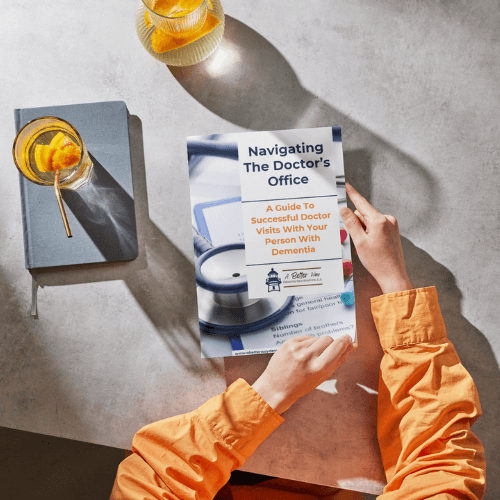

Affiliate Disclosure
A Better Way - Dementia Care Solutions, LLC participates in the Amazon Associates Program, which means we earn a small commission when you buy through links on our site, at no extra cost to you. We only recommend products that we believe can help caregivers on their journey.
Disclaimer: The information provided in this blog is for educational purposes only and should not be considered medical advice. Always consult with a doctor or a licensed physical therapist before starting any new exercise routine, using assistive devices, or following the recommendations mentioned. Every individual’s needs are different, and professional guidance is essential to ensure safety and appropriateness of care.
Want to keep figuring this out together?
Subscribe to Finding Our Way in Dementia Care and get honest stories, helpful tips, and gentle support delivered to your inbox every week. Just real talk, grounded care, and space to breathe.
Subscribe to Finding Our Way in Dementia Care and get honest stories, helpful tips, and gentle support delivered to your inbox every week. Just real talk, grounded care, and space to breathe.
Kind truth. Clear steps. Warm guide.


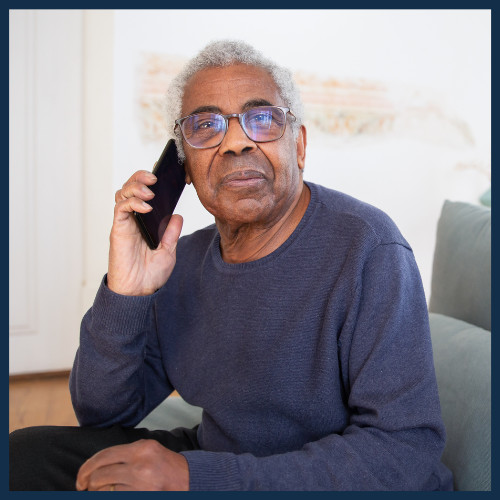

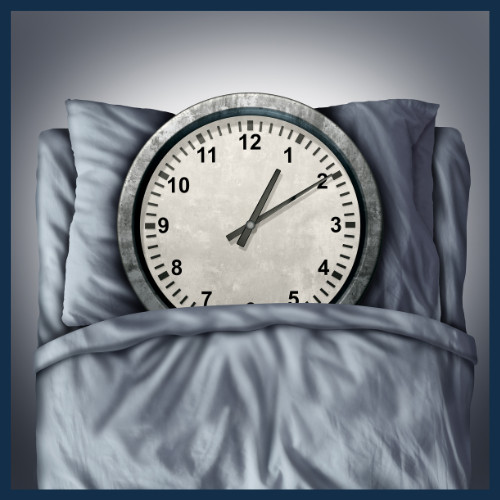
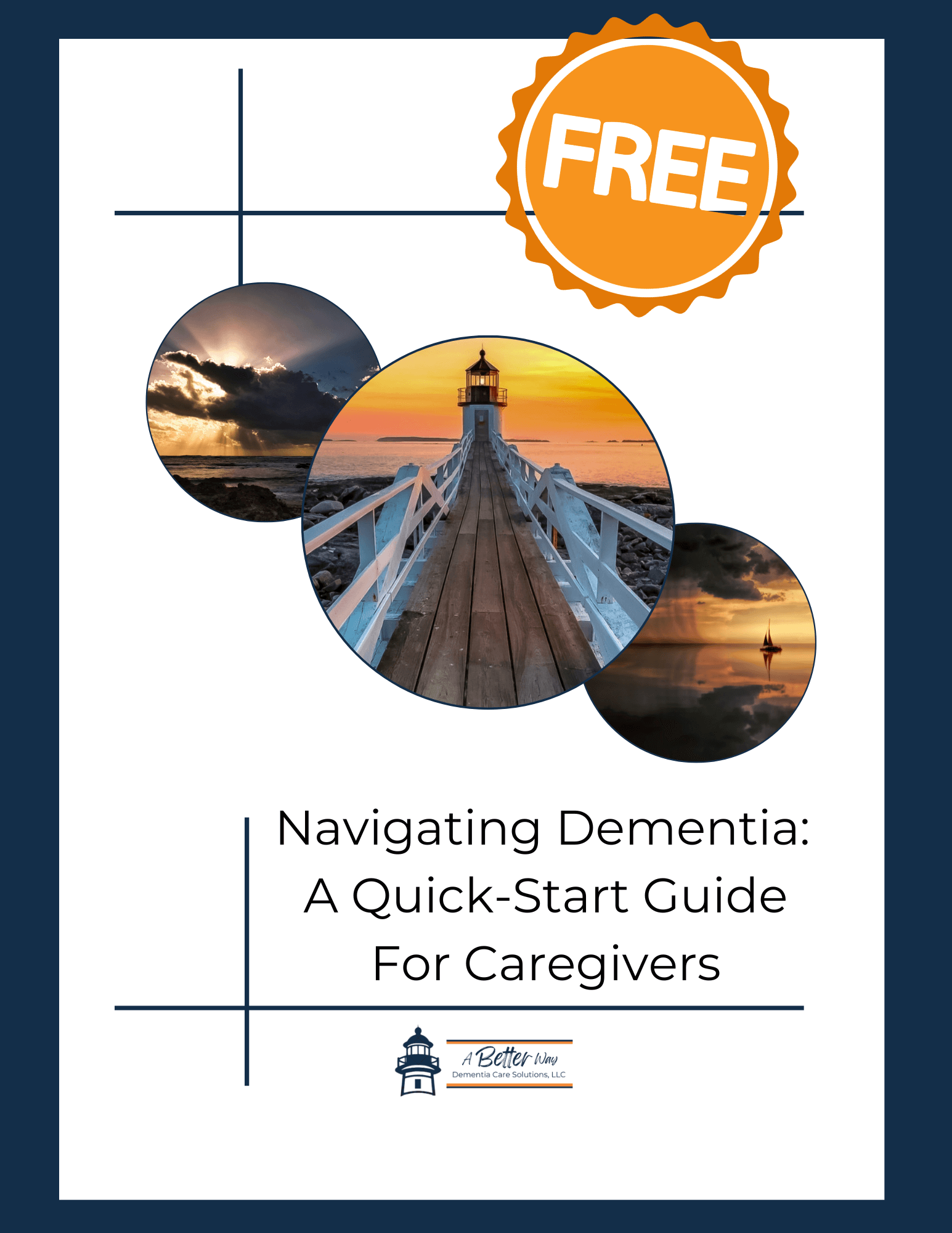





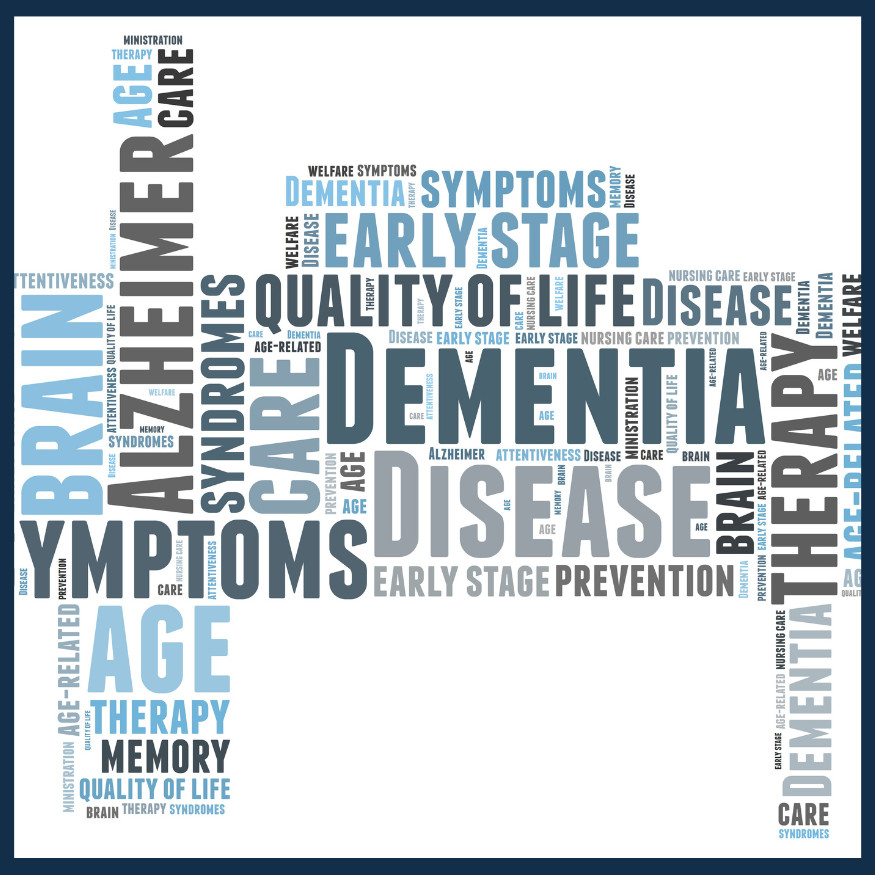




0 Comments